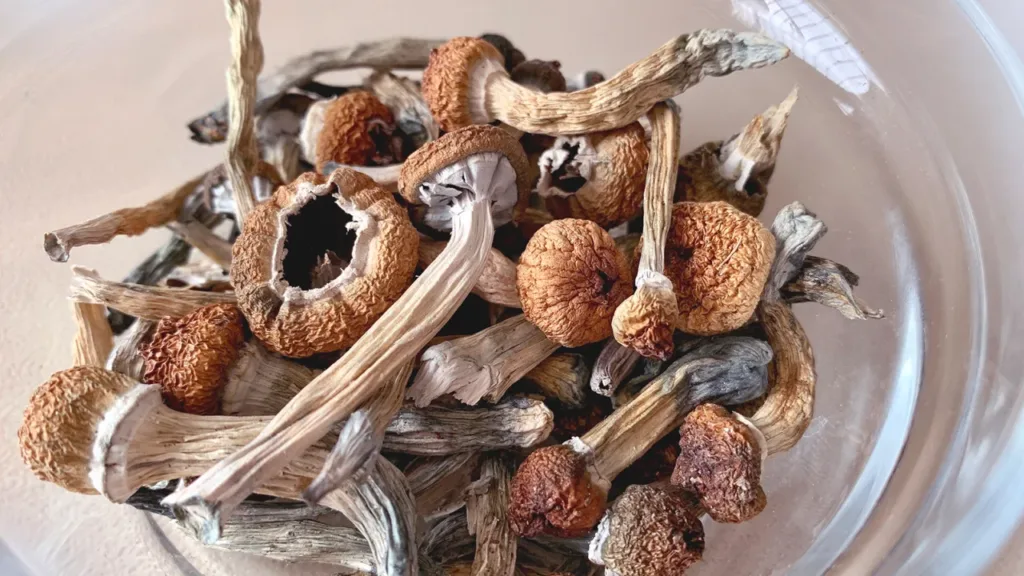Results of a study published in the journal Frontiers in Psychiatry “indicate broad therapeutic potential of psilocybin to produce lasting improvements in mental health symptoms related to anxiety, depression, and substance misuse”.

Dried psilocybin mushrooms. (Photo credit: Rich Townsend/Getty Images)
Additionally, the study states that “psilocybin seems capable of producing enduring changes in psychological functioning and personality such as increased cognitive flexibility, emotion regulation, and extraversion, and reduced neuroticism, even in naturalistic settings that lack structured psychological support.”
The study was conducted by researchers at Ohio State University, John Hopkins University and Unlimited Sciences, and it is the “largest prospective survey of naturalistic psilocybin use to date”.
This prospective, longitudinal study “comprised six sequential automated web-based surveys that collected data from adults planning to take psilocybin outside clinical research: at time of consent, 2 weeks before, the day before, 1–3 days after, 2–4 weeks after, and 2–3 months after psilocybin use”, states the study. A sample of 2,833 respondents completed all baseline assessments approximately two weeks before psilocybin use. 1,182 completed the two to four week post-use survey, and 657 completed the final follow-up survey two to three months after psilocybin use.
Participants primarily used dried psilocybin mushrooms (mean dose = 3.1 grams) for “self-exploration” purposes. Prospective longitudinal data collected before and after a planned psilocybin experience on average showed persisting reductions in anxiety, depression, and alcohol misuse, increased cognitive flexibility, emotion regulation, spiritual wellbeing, and extraversion, and reduced neuroticism and burnout after psilocybin use. However, a minority of participants (11% at 2–4 weeks and 7% at 2–3 months) reported persisting negative effects after psilocybin use (e.g., mood fluctuations, depressive symptoms).
The study concludes:
Despite the limitations noted above, findings from the present study are highly consistent with a growing body of clinical trial, behavioral pharmacology, and epidemiological data on psilocybin. Namely, these results indicate broad therapeutic potential of psilocybin to produce lasting improvements in mental health symptoms related to anxiety, depression, and substance misuse, and these benefits are often associated with subjective drug effects, including mystical-type experience. Additionally, psilocybin seems capable of producing enduring changes in psychological functioning and personality such as increased cognitive flexibility, emotion regulation, and extraversion, and reduced neuroticism, even in naturalistic settings that lack structured psychological support.
Results suggest psilocybin holds further promise for spirituality and wellbeing enhancement in non-clinical populations, which warrants additional research (21, 25). However, consistent with previous reports, we found a small minority of individuals reporting harms from sessions or long-term negative effects. Overall, these data provide an important window into the current resurgence of public interest in classic psychedelics and the outcomes of contemporaneous increases in naturalistic psilocybin use. Though the findings reported here are generally positive in nature, questions remain about for whom such use may pose unnecessary risks, mechanisms underlying the persisting changes observed, and in what ways psilocybin’s unique profile of pharmacological effects may be optimally harnessed in clinical or other settings, presenting critical directions for future investigation.








